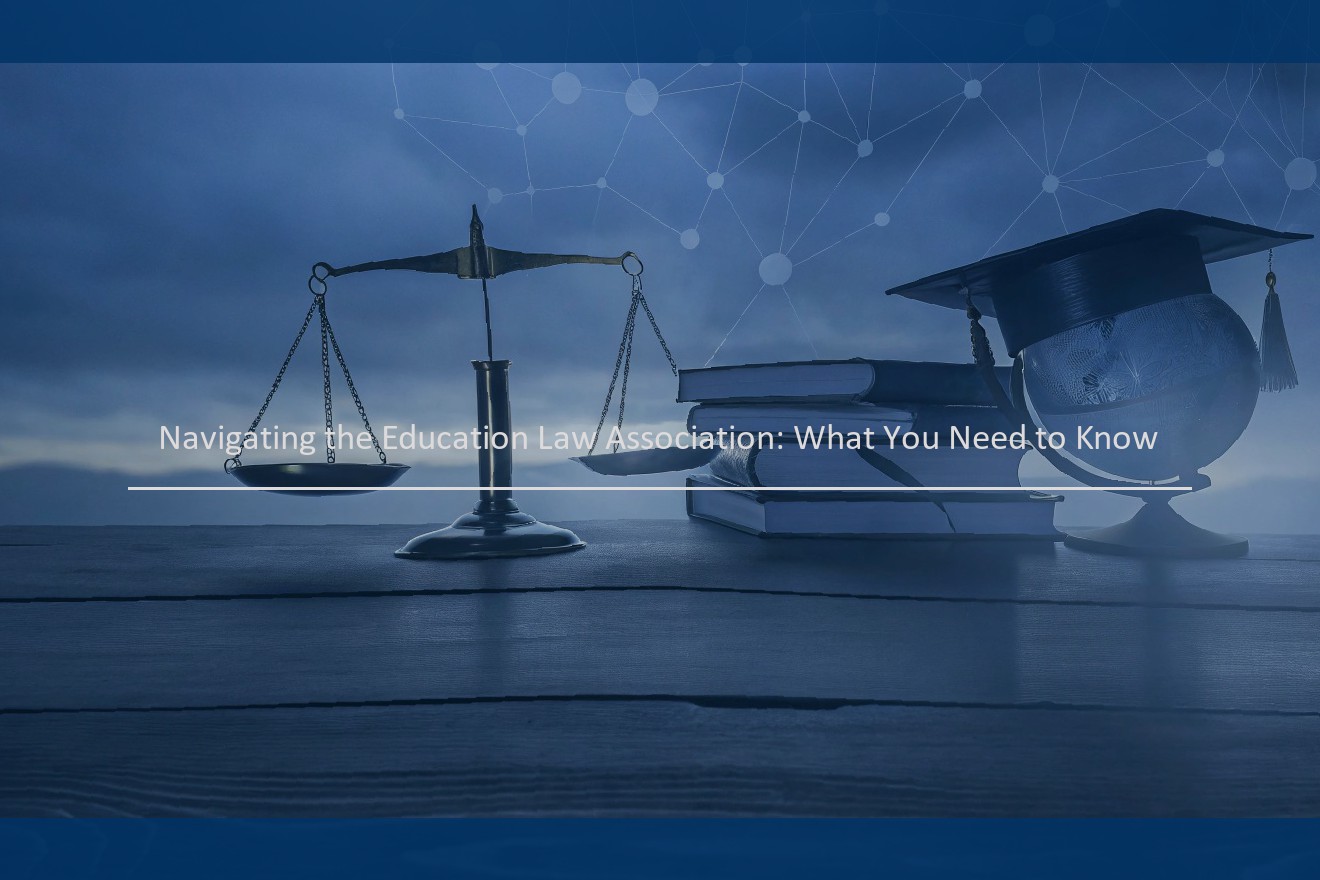What is the Education Law Association?
For over sixty years, the Education Law Association, or ELA, has devoted itself to improve the legal rights of students and teachers. In 1943, the ELA started with a small group of educators and school law practitioners who wanted to find efficient and innovative ways to address the legal issues in public education. Today, the ELA serves as the leading organization providing continuing legal education, publication resources, and communication for those practitioners at the forefront of education law. The ELA includes a mixture of six different membership types: Associate Members—the non-lawyer education administrators and supervisors; General Members—those attorneys who represent public schools; Institutional Members—typically the school districts themselves; Expert Members who are licensed attorneys; International Members who are attorneys outside the United States; and Organizational Members—the various associations that represent factions of the education law environment. The members of the ELA are committed to the improvement of education administration by the promotion of continuing education , scholarly research, workshops, publications, conferences and the networking opportunities that occur naturally as a result of the close relationships the ELA fosters. To this end, the ELA sponsors a quarterly journal, The Journal of Law and Education, which addresses current and emerging issues within the realm of education law. The ELA also publishes books, and a host of informational pamphlets dedicated to the various disciplines involved in education law—public and private. The general membership of the ELA meets twice a year, in spring and fall, to discuss current trends and the future of education law. In addition to the larger general meetings, regional chapters of the ELA meet two times a year during the spring and fall, as well as holding their own workshops and conferences to advance the goals of the association.
Benefits of Joining the Education Law Association
The Education Law Association furthers the professional development of its members by offering a variety of networking opportunities. Members not only have access to other legal minds, but also many other groups they may have never known existed. They can opt to sign up for listservs on specific interests, like the National Association of Attorneys General and the National Association of State Solicitors General. Members can also volunteer to place themselves on the speaker’s list or help edit the newsletter, as well as attend upcoming meetings and conferences. The Education Law Association publishes a great deal of academic materials and scholarly journals for its participants. Additionally, it has granted several grants and awards over the years to assist its members. This can be a fantastic prompt to go above and beyond in your work, showing others your dedication at the same time you learn new skills and tactics to further your career. The Education Law Association offers professional events like workshops and conferences along the way, allowing members to periodically meet with their peers and ask questions with ease. Members can attend upcoming events like the upcoming 64th Annual Fall Education and Law Conference in Kansas City, Missouri for three days in October or the 2019 Annual Kenneth K. Young Lecture and the Annual Meeting of the Education Law Section of the Indiana State Bar Association this December. It is easy to see how membership to the Education Law Association can provide a great deal of money and time-saving options and ways to truly advance your career.
Educational Opportunities Provided by the Association
Education Law Association members are offered a variety of resources, including publications, webinars and even conferences, to facilitate their need to stay educated on the issues they face within the school law atmosphere.
The ELU publishes "The Education Law Reporter," a national legal reporting service that offers subscribers weekly compilations of all federal and state education law decisions. The publication indexes all available education law cases throughout the year and is available in print or online. It is written by a team of in-house attorneys and research assistants and features annotations and cross-references.
The ELU also hosts regular webinars on various topics, including student discipline, employee discipline, and civil rights.
For those interested in a more immersive experience, the ELU also hosts annual conferences. The most recent one—held just days ago—focused on "Navigating Turbulent Waters." ELU also hosts semi-annual meetings focused on the leaders in school law, school leaders in addressing school law issues, school board members and staff to improve efficient operations within the school system.
Impact of the Education Law Association on Legal Professionals
The Education Law Association is a leading organization that has greatly impacted the field of education law. The association is committed to promoting the study, practice, and teaching of education law, as well as the dissemination of information on education law and policy.
Since its inception in 1954, the Education Law Association has brought together legal experts, educators, administrators, policy-makers, and researchers around the common goal of improving legal practices and understanding related to education. The organization has produced numerous publications that provide valuable insight into the development of legal issues effecting students, teachers, and institutions of learning.
Through its annual conferences, the Education Law Association facilitates the exchange of ideas and research between practitioners, researchers of the law, and makers of policy. The conference features a variety of workshops on specific issues within the field of education law, as well as opportunities to interact with other professionals and to network with them.
In addition to its contributions to the field of education law through its publications , the Education Law Association works to improve the professional development of education lawyers through educational programs and conferences. The Association provides a platform for education lawyers to improve their own practices and knowledge of the field. The Education Law Association also provides scholarship opportunities to its members to promote continuing education.
Another way in which the Education Law Association contributes to the field of education law is by working closely with a number of other organizations within that field. The Association collaborates with the National Association of School Lawyers, the American Association of Colleges for Teacher Education, and the American Educational Research Association, to name just a few. As a result of these collaborations, practitioners of education law are able to obtain huge volumes of information and background material.
The Education Law Association also runs an annual survey on topics related to education law. The results of the survey are compiled into a publication that is offered to members and is easy to use. The survey has been a valuable source of information for those practitioners involved in the field of education law.
The Education Law Association is dedicated to improving the practices of education lawyers by keeping them up to date on relevant issues and developments in that field. The Association’s contributions to the field of education law will no doubt have a significant impact on legal education and practices moving forward.
How to Become a Member of the Education Law Association
Membership in the Education Law Association is open to any person engaged in the practice, teaching or study of education law. You may join online by clicking on the "Join" link at the top of the homepage at www.elaaw.org, or you may download and complete a paper membership application available from the website. Memberships are individually issued, and multi-user firm memberships are also available from the website. The 2017-2018 dues for individuals, law students, and professors are $238 per year and include a subscription to the Journal of Law and Education. Membership dues for judges, state or federal government officials, and K-12 and higher education professionals are $109 per year and include the Journal of Law and Education. State and federal legislators, legislative staff, and legislative affiliates are free. Government and primary and secondary school attorneys may also become members of the Education Law Association at a discounted rate, which is currently $238 per year (compared to $319 for non-governmental attorneys). As of September 1, 2017, all new members will receive free access to the Education Law Reporter and Journal of Law and Education online archives.
Key Issues Impacted by the Education Law Association
Education law is a constantly evolving field, faced with new regulatory challenges and legal issues at almost every level of practice across the country. The Education Law Association (ELA) takes a central role in addressing many of these concerns. This not-for-profit, comprised of hundreds of education professionals, works to provide crucial information on legal decisions at state and federal levels, as well as closely monitoring the decision-making processes and administrative policy of educational institutions.
While specific legal challenges are different for each of the individual member associations under ELA, such issues may include ADA compliance, discrimination, accountability, data protection for students, employment status, and common areas of dispute. The threat of litigation continues to be an important factor in the rolling out of educational initiatives or new policy proposals, and the ELA acts as a watchdog of sorts on pending or clouded issues, keeping members informed about the latest developments.
The body of law governing education continues to grow larger, more complex, and hotterly contested with almost every passing year . Legislative requirements, new judicial precedent, and increased advocacy on behalf of individuals with disabilities, school employees, and students are exacerbated by the fact that both American citizens and immigrants are guaranteed the right to a free education, and ensuring equal opportunity within education is the prerogative of the provinces. Certain areas of interest for ELA members include, but are not limited to:
In each of these areas, the ELA relies on its vast network of education law professionals to keep member states updated on new legislation, judicial decisions, and issues that may arise. The ELA acts as an advisory body, coordinating responses to federal court decisions of interest as they are released. Research is conducted by statewide and local chapters of the group, which are then compiled and distributed to individual members.
Disengaged legislators and decreasing funding are just two reasons why advocacy and lobbying have become vitally important and impact litigation and the managerial decision making.



+ There are no comments
Add yours